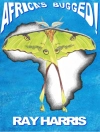The Flying Inn may be briefly characterised as a narrative comic opera. It follows the Gilbertian formula of satirising actual anomalies by carrying them out quite logically to burlesque extremes; and the resemblance is heightened by the serio-comic songs with which the characters regale one another throughout the story. Mr. Chesterton takes Prohibition for his point of attack, as it might have been Chancery or Aestheticism or the Admiralty; and his fantasy develops out of the ridiculous facts with the same methodical madness, the same wild precision of logic, which make Patience and Iolanthe and Pinafore a dithering delight. The aristocrat of the hour, becoming fanatical upon the subject of the Higher Orientalism, enacts that no alcohol shall be sold except under the sign of a licensed inn: which license is, of course, refused except to a few highly expensive establishments. But, just as the last inn of old England is about to be torn down, along comes a wild Irish captain who is a friend of the innkeeper; plucks up the sign, and away they go, taking with them a cheese and a keg of rum and a delectable bull-pup who rejoices in the name of Quoodle …
Sobre o autor
English journalist and author, who came of a family of estate-agents, was born in London on the 29th of May 1874. He was educated at St Paul’s school, which he left in 1891 with the idea of studying art. But his natural bent was literary, and he devoted himself mainly to cultivating that means of expression, both in prose and verse; he did occasional reviewing, and had some experience in a publisher’s office. In 1900, having already produced a volume of clever poems, The Wild Knight, he definitely took to journalism as a career, and became a regular contributor of signed articles to the Liberal journals, the Speaker and Daily News. He established himself from the first as a writer with a distinct personality, combative to a swashbuckling degree, unconventional and dogmatic; and the republication of much of his work in a series of volumes (e.g. Twelve Types, Heretics, Orthodoxy), characterized by much acuteness of criticism, a pungent style, and the capacity of laying down the law with unflagging impetuosity and humour, enhanced his reputation. His powers as a writer are best shown in his studies of Browning (in the ‘English Men of Letters ‘ series) and of Dickens; but these were only rather more ambitious essays among a medley of characteristic utterances, ranging from fiction (including The Napoleon of Notting Hill) to fugitive verse, and from artistic criticism to discussions of ethics and religion.












